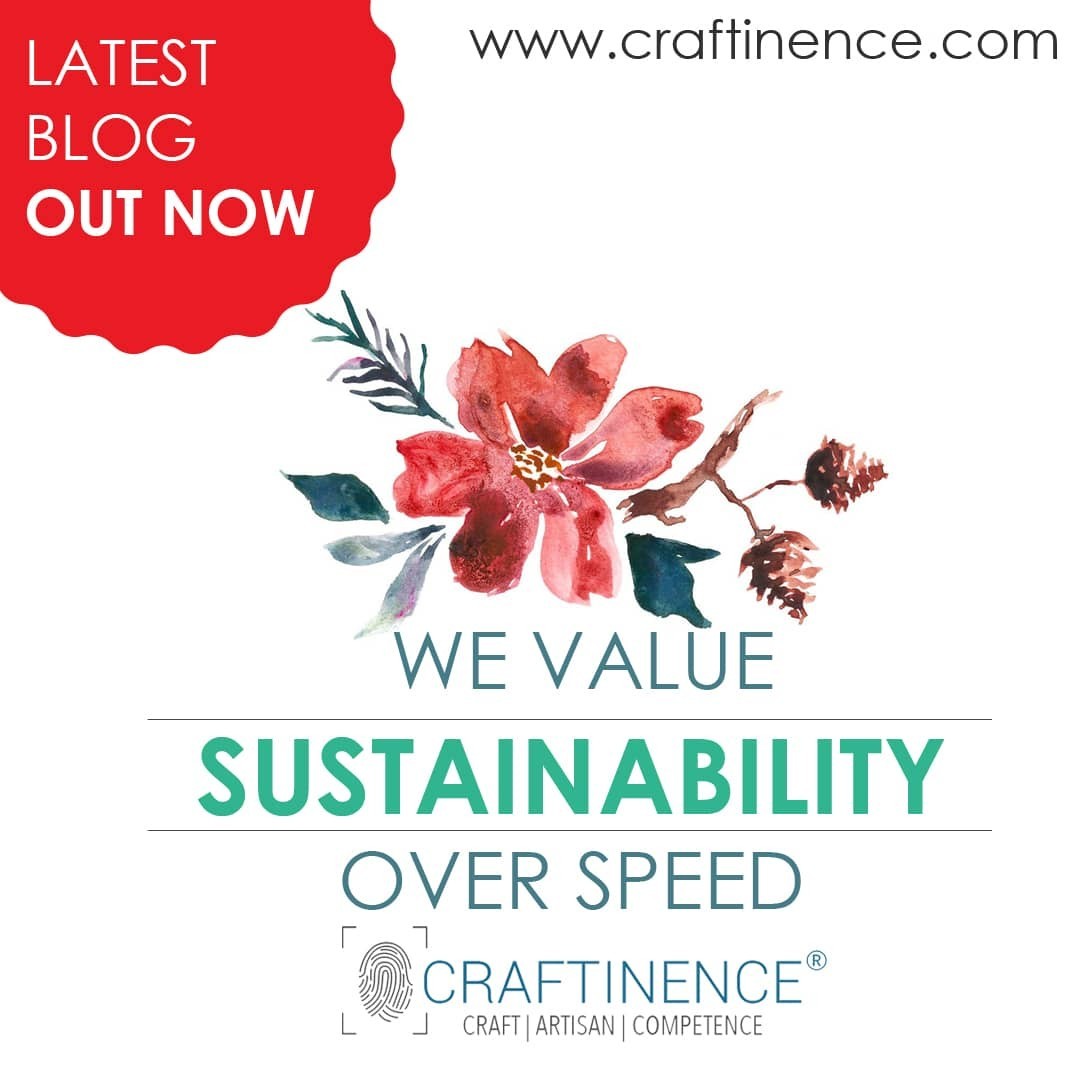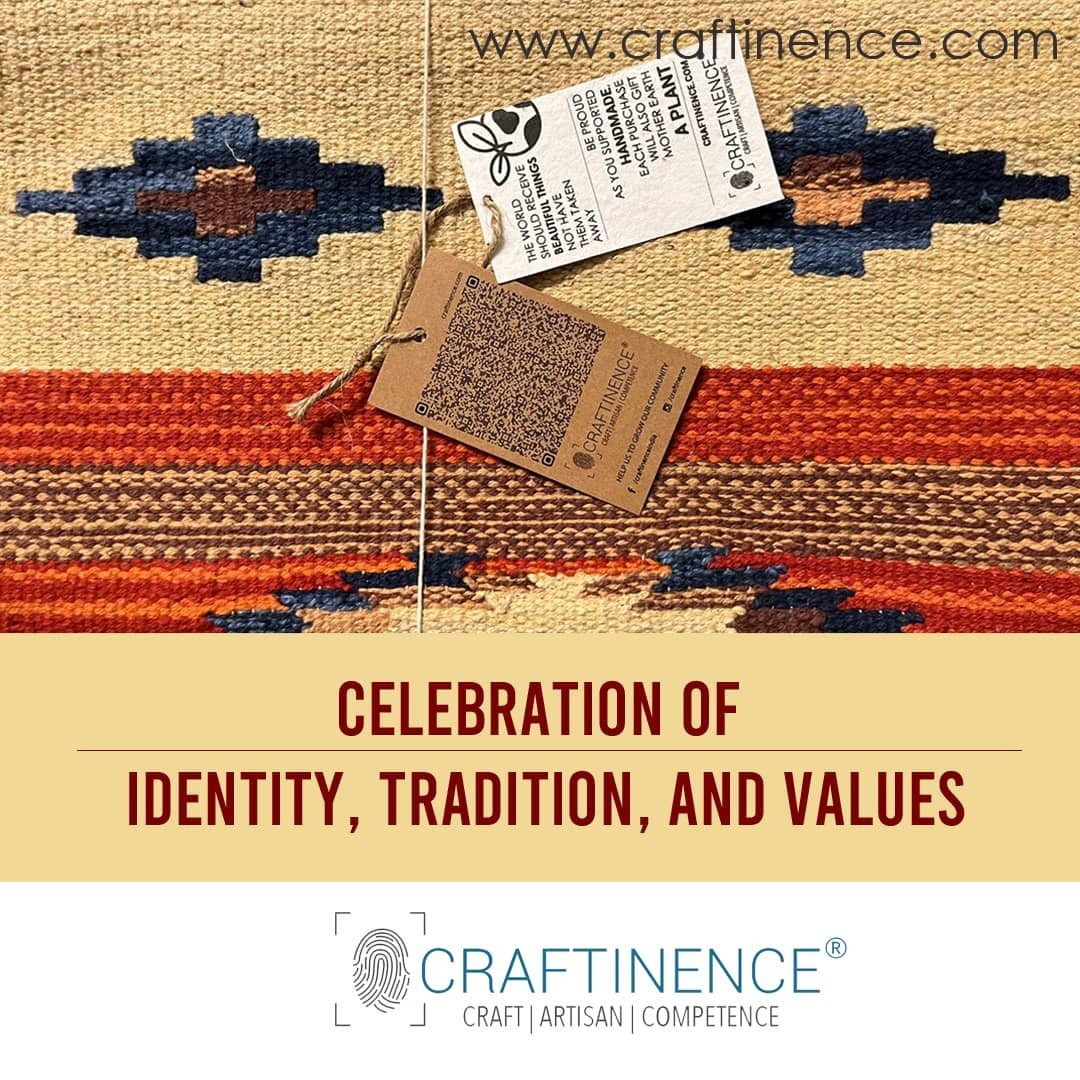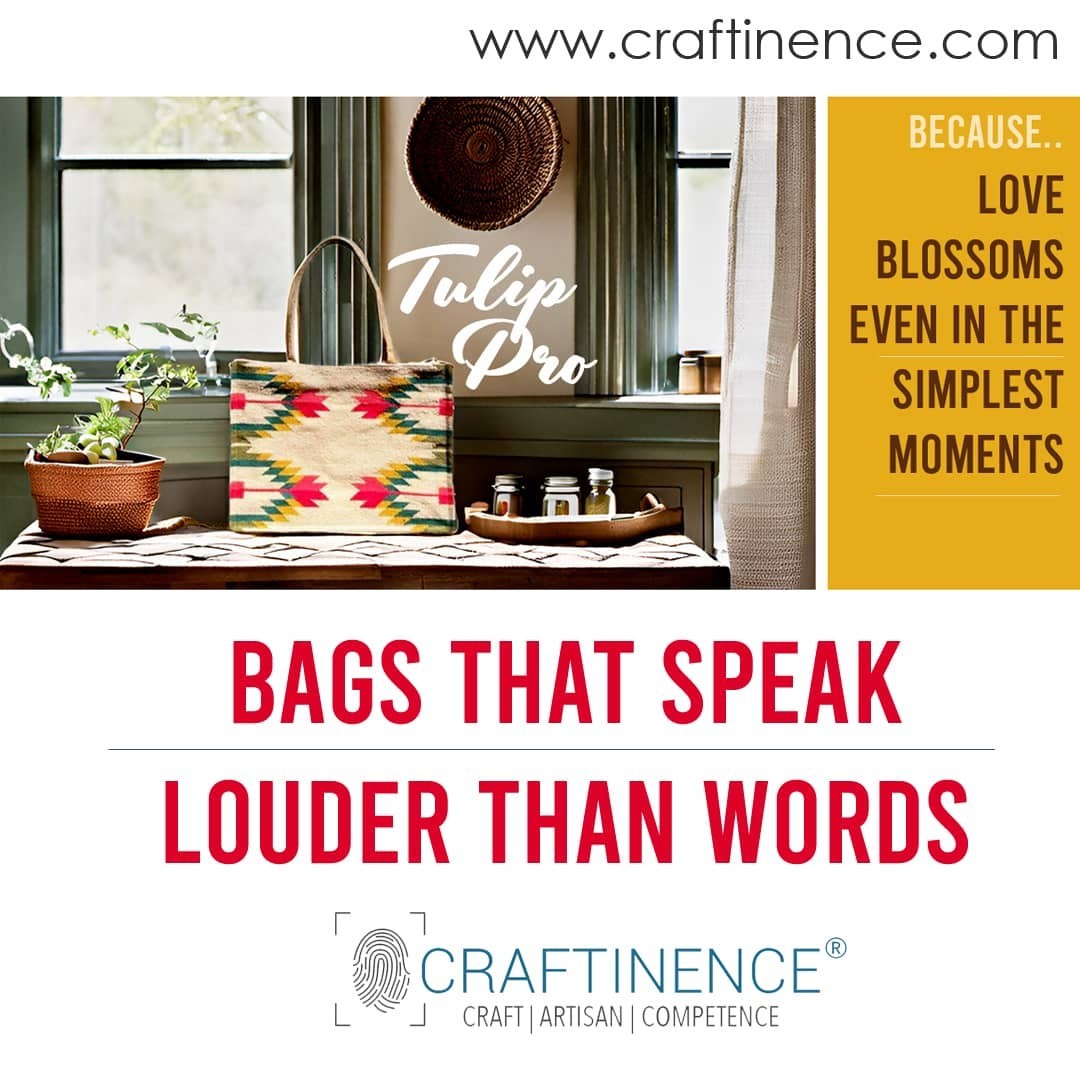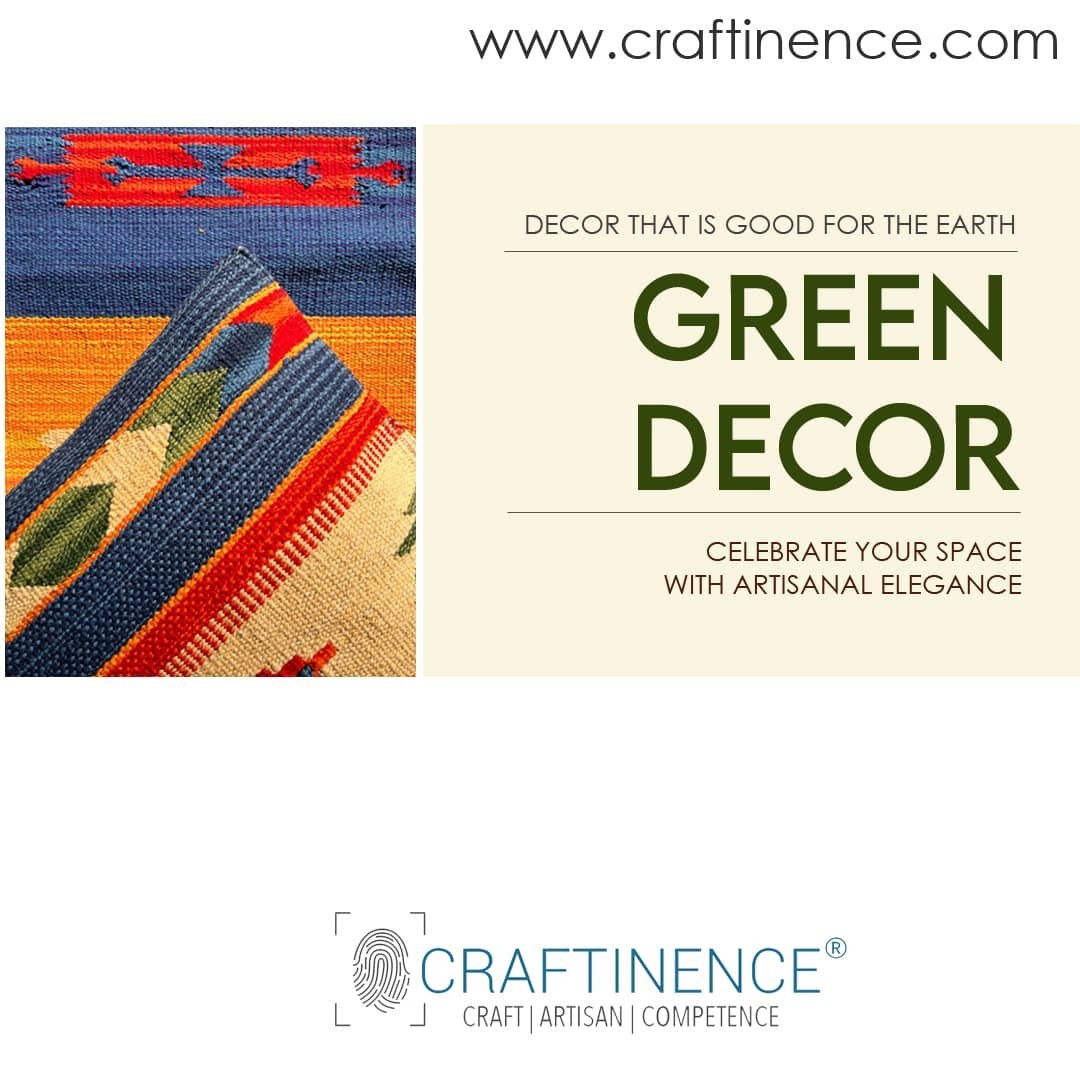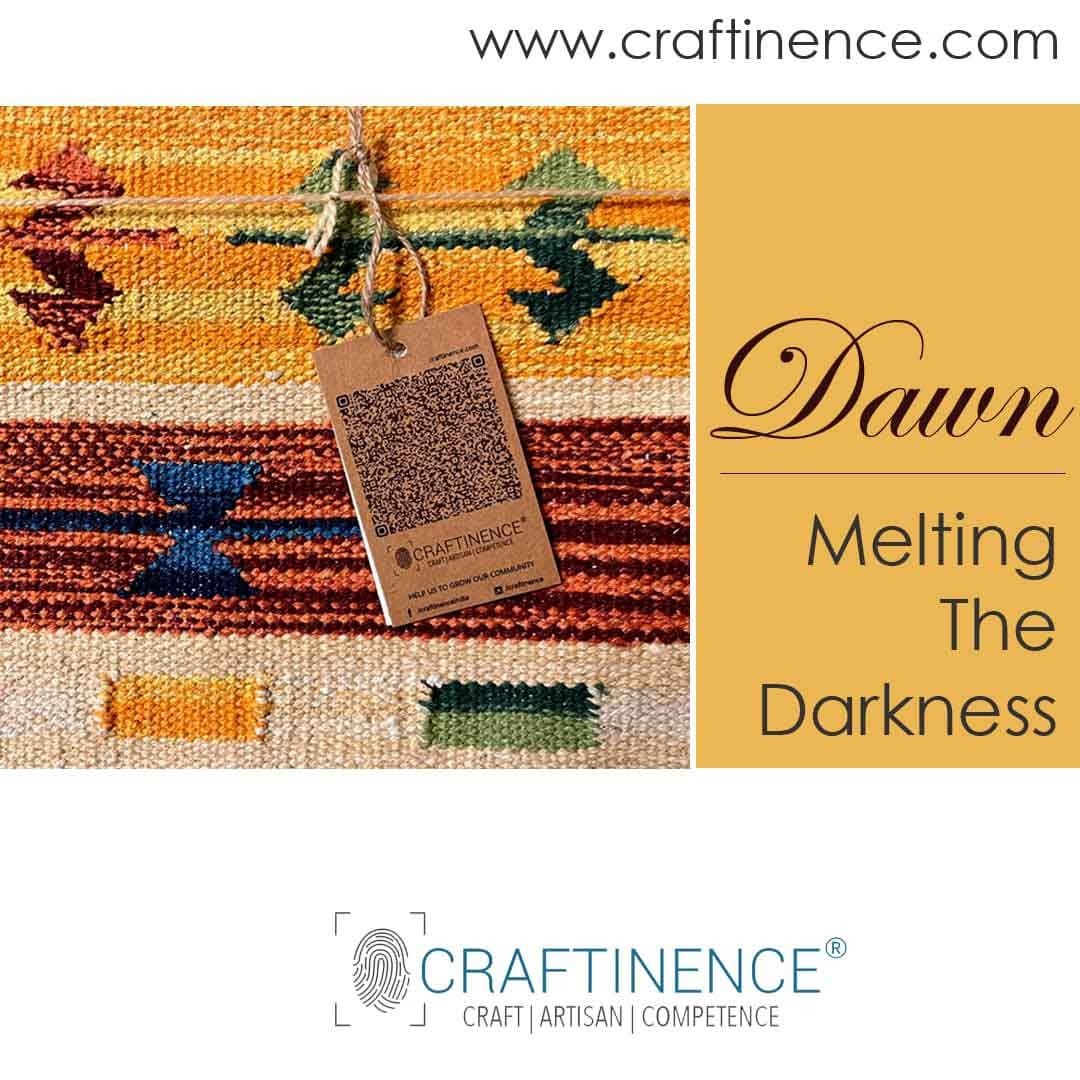Categories
Latest Post
-
comment 0 comments
-
10 Reasons to Be Proud of Owning a Handmade Craftinence®...
comment 0 comments -
Say Goodbye to Boring eco friendly gifts Gifts: Discover...
comment 0 comments -
Cushion Cover Set of 5: A Home Design Must-Have
comment 0 comments -
Discover This Holi how Craftinence® & EarthBased Are...
comment 0 comments -
How to Keep Your Dining Table Mats Clean and Maintained:...
comment 0 comments
Recent Comments
-
These boho bags are useful & easy to carry. Best companion during your casual...Mar 1, 2024

Supporting Fair Trade: How Buying Craftinence® Kilim Cushion Covers Can Empower Artisans
Kilim cushion covers are vibrant, handwoven sustainable textiles made from wool or cotton, known for their intricate geometric patterns and rich colors.
Originating from regions like Turkey, Iran, and the Caucasus, Kilims are flat-woven carpets or rugs that carry deep cultural significance.
Each design often tells a story, representing themes like fertility, protection, or love, and is a reflection of the artisan's heritage and traditions.
When crafted into cushion covers, these Kilims bring a piece of history and cultural artistry into homes, adding both aesthetic appeal and a connection to ancient weaving traditions.
What is Fair Trade?
Fair trade is a movement aimed at ensuring that artisans and producers, particularly in developing countries, receive fair wages, work under safe conditions, and are empowered through sustainable business practices.
This approach is vital in the context of handmade, traditional crafts like Kilim weaving, where artisans often spend hours creating intricate, culturally significant pieces. Without fair trade, these skilled workers might be underpaid, undervalued, or exploited, leading to the loss of traditional crafts and cultural heritage. By supporting fair trade, consumers help preserve these age-old techniques, provide economic stability to artisans, and contribute to a more equitable global market.
Fair trade supports artisans in developing countries by ensuring they receive fair compensation for their work, which directly impacts their quality of life and economic stability. Instead of being subjected to the often-exploitative practices of traditional markets, where middlemen may take a large portion of the profits, artisans under fair trade agreements are paid fairly and promptly for their craftsmanship. This equitable income allows them to invest in their families, communities, and future, breaking the cycle of poverty.
Additionally, fair trade organizations often provide artisans with access to resources, training, and market opportunities they might not otherwise have. This can include support in improving their craft, understanding market demands, or even gaining access to international markets. By offering these resources, fair trade empowers artisans to grow their businesses sustainably, preserving traditional crafts like Kilim weaving while fostering cultural pride and community development.
The Art of Kilim Weaving
Each Craftinence® Kilim Cushion Cover embodies a rich cultural heritage and traditional knowledge, meticulously woven by artisans whose skills have been perfected over generations. Kilim weaving is more than just a craft; it's a crucial part of the cultural identity in regions like Turkey, Iran, and the Caucasus. The intricate patterns and techniques used in Craftinence® Kilim Cushion Covers are deeply rooted in history, with symbolic designs that narrate stories of the artisan's community, beliefs, and natural surroundings.
These weaving skills are typically passed down through families, with each generation learning the art from the one before. The geometric patterns and motifs featured in Craftinence® Kilim Cushion Covers are not merely decorative but carry profound cultural significance, representing themes such as protection, fertility, and nature. By crafting these cushion covers, artisans preserve and continue a rich cultural legacy, ensuring that the traditions and stories of their ancestors endure. When you choose a Craftinence® Kilim Cushion Cover, you're not just selecting a beautiful piece of decor—you're acquiring a piece of living history, intricately woven with care and tradition.
The Importance of Supporting Artisans
Despite the immense skill and time required to create these intricate textiles, many artisans struggle to earn a sustainable income. The global market's demand for cheap, mass-produced goods often undermines the value of handcrafted items like Kilim cushion covers, leading to low wages and economic instability for the artisans.
Additionally, these artisans frequently lack access to broader markets, limiting their ability to sell their products at fair prices. Middlemen may exploit this situation by purchasing Kilims at minimal costs and selling them at much higher prices, leaving the weavers with only a fraction of the final profit. This economic disparity can make it difficult for artisans to support their families, invest in their craft, or pass down their skills to the next generation.
Moreover, the rise of industrialization and urbanization in many of these regions has led to a decline in traditional crafts. Younger generations might be less inclined to pursue weaving, opting instead for more financially stable or modern careers. This shift threatens the survival of Kilim weaving as a cultural practice, as the economic pressures discourage the continuation of these age-old traditions.
By understanding these economic challenges, consumers can make more informed decisions, choosing to support fair trade initiatives that provide artisans with the resources, fair wages, and market access needed to sustain their craft and improve their quality of life.
Sustainable Practices in Kilim Production
- Explain how fair trade often aligns with sustainable practices, such as using natural dyes and environmentally friendly production methods.
- Highlight how supporting fair trade Kilim cushion covers contributes to environmental conservation and the preservation of traditional techniques.
Environmental Conservation
- Sustainable Materials: Craftinence® utilizes natural, eco-friendly materials such as wool and cotton in their Kilim cushion covers. These materials are biodegradable and have a smaller environmental footprint compared to synthetic fabrics.
- Eco-Friendly Dyeing: The cushion covers are often dyed using traditional, natural dyes, which are less harmful to the environment than synthetic alternatives. This approach reduces pollution and supports sustainable dyeing practices.
- Durability and Longevity: By focusing on high-quality craftsmanship, Craftinence® ensures that Kilim cushion covers are durable and long-lasting. This reduces the need for frequent replacements, minimizing waste and promoting sustainable consumption.
Preservation of Traditional Techniques
- Fair Trade Support: Craftinence®’s commitment to fair trade ensures that artisans receive fair wages and support, allowing them to continue practicing their traditional weaving skills. This financial stability is crucial for preserving these ancient techniques.
- Cultural Heritage: The support for fair trade helps maintain the cultural significance of Kilim weaving. By valuing and promoting these traditional crafts, Craftinence® helps keep alive the intricate patterns and methods that are passed down through generations.
- Skill Retention: Craftinence®’s investment in fair trade helps artisans sustain their craft, ensuring that traditional weaving techniques are preserved and taught to future generations. This keeps the art form vibrant and relevant in a changing world.
When decorating your home, consider choosing fair trade options like Craftinence® Kilim cushion covers. By selecting fair trade products, you're not only enhancing your living space with unique, handcrafted items but also making a positive impact on the lives and communities of artisans.
Fair trade ensures that artisans are paid fairly, work in safe conditions, and have the opportunity to preserve their traditional crafts. Your purchase supports sustainable practices and helps keep cultural heritage alive. Each piece tells a story and contributes to a better, more equitable global market.
So, when you’re looking for beautiful and meaningful décor, remember that your choice can make a difference. Opting for fair trade products means you’re investing in quality, supporting skilled artisans, and fostering a more just and sustainable world.
